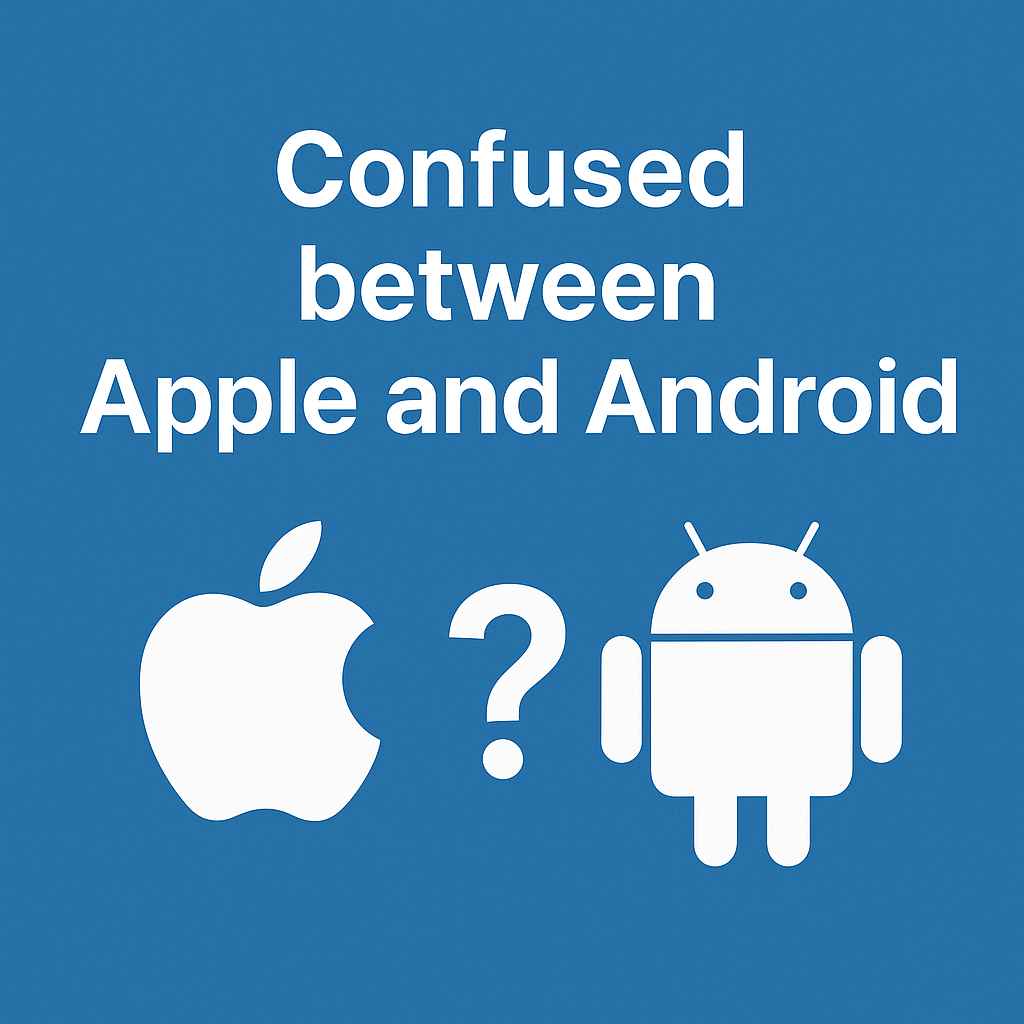
When it comes to smartphones, the battle of Apple vs Android has dominated the tech world for over a decade. But in 2025, the decision isn’t just about brand loyalty — it’s about choosing the platform that fits your needs, lifestyle, and budget.
In this guide, we break down the key differences between Apple (iOS) and Android, so you can make an informed decision.
🔍 1. User Experience (UX)
- Apple (iOS): Known for its smooth, consistent, and intuitive user interface.
- Android: Offers more customization, widgets, and control over UI.
Verdict: If you like simplicity, go with Apple. Prefer control? Choose Android.
💡 2. Hardware Variety
- Apple: One new iPhone per year with different sizes. Premium build quality.
- Android: Wide range of models from brands like Samsung, Google, OnePlus, Xiaomi, etc.
Verdict: Android gives you more choices at every price point.
🔄 3. Software Updates
- Apple: Pushes updates directly to all supported iPhones simultaneously.
- Android: Updates depend on device manufacturers, often delayed.
Verdict: Apple is the winner in consistency and speed of updates.
🔐 4. Privacy and Security
- Apple: Strong emphasis on privacy (App Tracking Transparency, Face ID encryption).
- Android: Good privacy tools, but varies based on manufacturer.
Verdict: Apple edges out Android for tighter privacy controls.
💰 5. Price and Value
- Apple: Higher starting prices. Longer software support gives better long-term value.
- Android: Budget, mid-range, and premium devices available.
Verdict: Android is more budget-friendly; Apple offers longer-term value.
📸 6. Camera and Performance
- Apple: Consistently excellent cameras and performance optimization.
- Android: Flagship models (like Pixel, Galaxy S-series) rival or beat iPhones in some categories.
Verdict: Both offer stunning performance; Android flagships may offer better hardware, but Apple excels in consistency.
🌐 7. Ecosystem and Integration
- Apple: Seamless integration between iPhone, Mac, iPad, Apple Watch, and AirPods.
- Android: Google ecosystem is improving (Chromebook, Pixel Watch), but less unified.
Verdict: Apple is best for cross-device synergy.
🔋 8. Battery Life and Charging
- Apple: Strong battery life on Pro models; slower charging compared to some Androids.
- Android: Faster charging, some with 100W+ speed; mixed battery life.
Verdict: Android wins on charging tech, but battery life depends on the model.
📌 iOS vs Android: Quick Overview
| Feature | Apple (iOS) | Android |
|---|---|---|
| Operating System | iOS (Apple-exclusive) | Android (Google, open-source) |
| Device Range | Limited (iPhone only) | Wide variety (Samsung, Google Pixel, etc.) |
| Customization | Minimal | Highly customizable |
| App Store | App Store (strict review) | Google Play Store |
| Software Updates | Regular & timely | Varies by manufacturer |
| Ecosystem Integration | Strong (Mac, iPad, Watch) | Improving, varies by brand |
🧠 Which Should You Choose?
Choose Apple (iOS) if you:
- Already own other Apple devices
- Prefer privacy, reliability, and ease of use
- Want years of software updates
Choose Android if you:
- Want more choices and features
- Prefer a customizable experience
- Need a phone that fits a specific budget
🗣 Final Thoughts: Choosing Between Apple and Android
There’s no clear winner in the Apple vs Android debate — only what’s right for you. Both platforms are powerful, polished, and packed with features. Your best choice depends on your priorities, whether it’s budget, performance, privacy, or app ecosystem.



